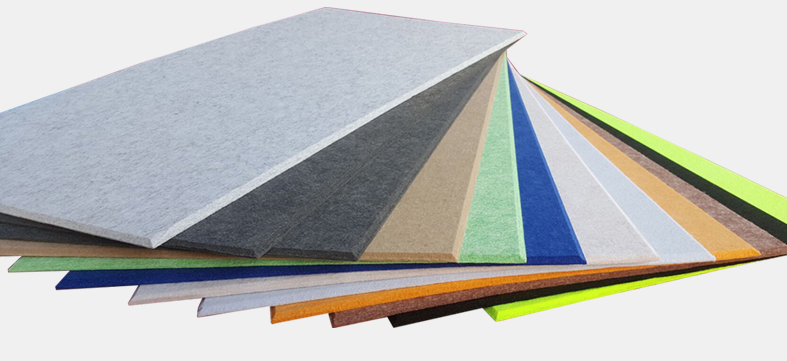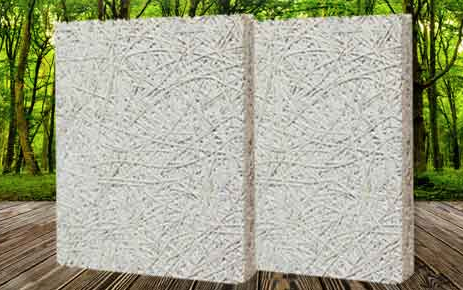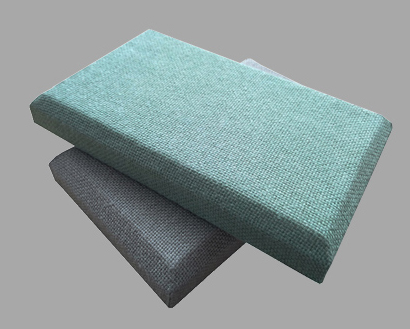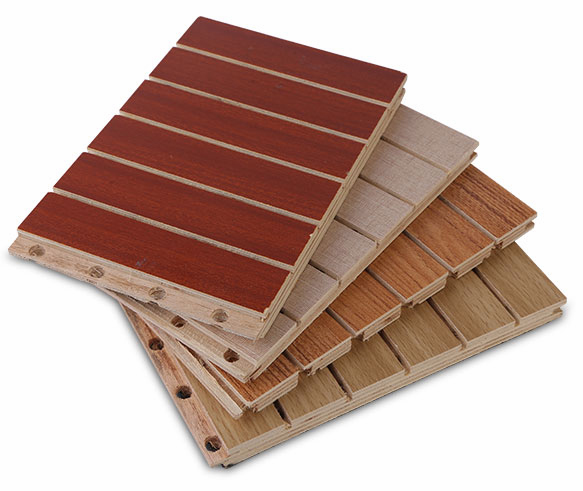Acoustic Panels
กก
Especially in open-plan offices
or call centers, recording studios, at home or at work, good acoustics
are important. If the noise level is too high,
the work and quality of
work suffer. The use of acoustic panels can reduce the noise level and
improve the acoustics in a room. Acoustic panels
are offered with
various materials that have an absorbing effect. When the sound hits the
acoustic panels, it is largely converted into heat by
the porous
surface. So only a part of the sound comes back into the room, which
leads to a significant reduction of the noise.
Possible applications of acoustic panels

Acoustic panels can act on a room in different ways. Among other things,
the use of wall or ceiling panels is very common. These are attached,
for example,
in the form of a ceiling sail directly below the actual
ceiling. For this purpose, acoustic panels are still used in various
other ways, such as the active
furniture front of cabinets or shelves.
This way, the furniture can also be converted into sound absorbers. The
big advantage of this is that acoustic
panels can also be retrofitted
without any special construction effort. To improve the sound in
recording studios or concert halls, acoustic panels are also used here.

Absorber classes of acoustic panels
Acoustic panels are divided into an absorber class between A and E. For
classification, a codified procedure is used, which is specified in DIN
EN 11654.
The absorber class is based on the respectively determined
absorption level. Which class is recommended for a room always depends
on the
requirements made of the acoustic panels. Depending on the
materials used, the sound absorption already present in a room can be
supplemented in a frequency-dependent manner. However, since balanced
acoustics depend not only on the degree of absorption
but also on the
degree of reflection, it is also possible to buy acoustic panels which
are not assigned to any absorption class.

Classes A and B are highly
absorbent, with a rated absorbance of between 0.90 and 1.00 for Class A
and 0.80 to 0.85 for
Class B absorption. C-type acoustic panels are
still highly absorbent and have one Absorbency between 0.60 and 0.75.
The sound insulation classes D and E then offer only lower values with
a sound absorption coefficient of 0.30 to 0.55 or 0.15 to 0.25.

On our pages you will find all the acoustic panels for almost every area
- browse through our shop, use our online consultant or call - we are
happy to help.
กก
กก